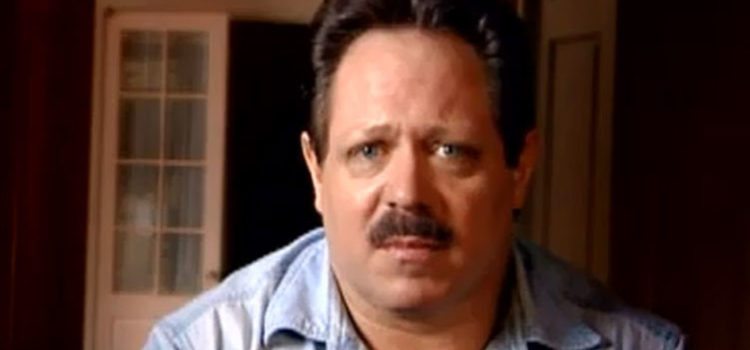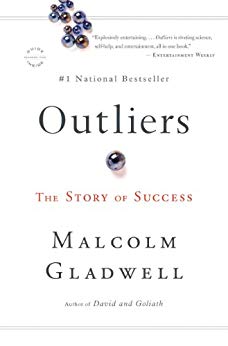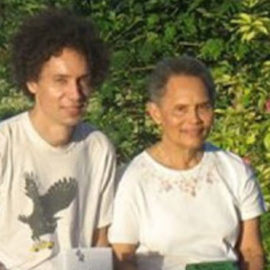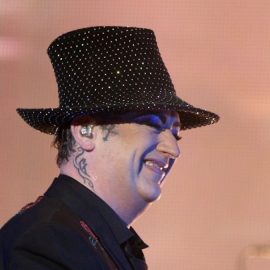

This article is an excerpt from the Shortform summary of "Outliers" by Malcolm Gladwell. Shortform has the world's best summaries of books you should be reading.
Like this article? Sign up for a free trial here .
Christopher Langan is the smartest man alive, with an IQ of 195 (for comparison, Einstein’s was 150). But he has spent most of his life as a bouncer in a bar.
Robert Oppenheimer was also a genius. The theoretical physicist and father of the atomic bomb was one of the most important figures of the 20th century.
Why are the career trajectories of these two geniuses so dramatically different?
Money certainly played a role—Langan grew up in poverty and Oppenheimer’s family was well-off. But beyond the direct advantages of wealth, Oppenheimer benefitted from wealth’s indirect advantages, including being raised in the “concerted cultivation” style and learning the practical intelligence needed to talk his way out of numerous controversies.
Conversely, Langan was raised in the accomplishment-of-natural-growth parenting style. He never developed the practical intelligence that would have given him opportunities to succeed.
Christopher Langan’s Lack of Practical Intelligence
When he was a child, Chris Langan’s intellectual feats were astonishing. Among other talents, he could speak at six months, read at age three, and question the existence of God by age five. He got a perfect score on the SAT, even though he fell asleep during the test. He could ace foreign language exams by simply skimming a textbook minutes before class. He loved to learn, studying math, languages, and philosophy for hours on his own each day.
However, Chris Langan’s early life lacked the support and opportunity necessary to nurture and develop his gifts. Gladwell suggests that Christopher Langan’s family experiences failed to instill in him the practical intelligence needed for success. He didn’t know how to ask for what he wanted and get it.
He grew up in poverty and remembers owning a single outfit as a child and wearing shoes covered in holes. His stepfather was physically abusive, and even after Chris Langan seemed to have escaped his dismal life, arriving at Reed College, he experienced a series of setbacks. His lack of practical intelligence prevented him from overcoming the setbacks:
Setback #1: Although Chris Langan earned a full-ride scholarship to Reed, his mother neglected to sign the financial aid forms.
- Chris Langan’s Response: He lost the scholarship and dropped out of Reed. He hadn’t fit in there, anyway. All the east coast kids were assertive and inquisitive, and he couldn’t get a word in.
- His response lacked practical intelligence. Financial aid problems are common. Langan was never taught how to negotiate with authority figures, so he didn’t know how to effectively communicate with the school, which (Gladwell says) would have likely helped him rectify the situation if they knew his circumstances.
Setback #2: Later, while enrolled at Montana State, Christopher Langan rather rudely asked his introductory calculus professor why he was teaching calculus in such a trivial way. The offended professor attacked Langan’s intellectual ability to grasp the concepts.
- Chris Langan’s Response: Langan assumed the professor was unjust and dull, and presumably didn’t approach him again.
- His response lacked practical intelligence: Langan didn’t mean to be rude; he genuinely wanted to have a conversation about calculus with someone who loved math as much as he did. But his manner of communicating left the professor defensive and ignorant of the passion for math they shared.
Setback #3: Langan’s transmission fell out of his car, and he couldn’t afford to get it fixed. He asked his adviser, and then the dean, if he could rearrange his class schedule in order to catch a ride into town from a neighbor. The school denied Langan’s scheduling request.
- Chris Langan’s Response: He dropped out of college a second time, deciding he didn’t want a degree anyway. He would get along without the help of these unfair bureaucracies.
- His response lacked practical intelligence: Students rearrange their schedules all the time. Why couldn’t Langan? Gladwell again implies that a little negotiating could have fixed this issue. Because he didn’t know how to negotiate, Langan gave up his dream of college relatively easily.
One of Christopher Langan’s bothers says that their abusive stepfather instilled in all of them a resentment of authority. Like the working-class kids in the study of parenting philosophies, Langan didn’t trust authority. Langan’s childhood taught him to that being independent was the only way to get through life because growing up, he couldn’t depend on anyone. Of course he didn’t think he needed a college education. He had always done things on his own. He thought he was better off without having to answer to anyone.
Despite Chris Langan’s intellectual prowess, he has struggled to find meaningful work or worldly success. With the exception of a brief television appearance, Langan continues to live in relative obscurity. He once dreamed of becoming a professor. Since then, he’s worked on a clam boat, as a construction worker, as a factory worker, in civil service positions, and as a bouncer.
Christopher Langan is still passionate about his intellectual work. He currently lives on a farm in Missouri and works on his treatise, the “Cognitive Theoretic Model of the Universe.” As good as his work might be, it has little chance of being read—Langan says that he lacks the academic credentials to be taken seriously in the publishing world.
Robert Oppenheimer’s Practical Intelligence
Gladwell contrasts Langan’s situation with Robert Oppenheimer, a physicist hired to head the American effort to develop the nuclear bomb during WWII.
Like Langan, Oppenheimer possessed a brilliant mind. He was doing lab experiments by third grade and studying physics and chemistry by fifth grade.
———End of Preview———

Like what you just read? Read the rest of the world's best summary of "Outliers" at Shortform . Learn the book's critical concepts in 20 minutes or less .
Here's what you'll find in our full Outliers summary :
- What makes some people outliers, and most others not
- Why some genius outliers end up failing in life
- Why Asians are good at math, and other curiosities of culture







I wanted to know if you could point me to the resources, source texts, etc. used to derive what was used to compose this as well as to get the facts for this piece?
They might be later into it, but I’m having trouble finding them from mobile.
Thank you ahead of time, and I hope to hear back from you soon-ish or whenever you have time.
A redefining of the term practical intelligence maybe needed for me to understand how it is even possible to rain fire on someone who is cognitively, physically and spiritually superior to most. A real man, with real life experience. Unsuccessful??? I wonder why he doesn’t like academics. Here in Australia our vernacular can accurately describe the authors take in two words.
Interesting article. So many Intellectuals deny the existence of God. Chris has made it his life’s pursuit. I wish him the best. I pray he and his wife enjoy their time together on the farm and the ctmu receives the respect as it deserves.
Well maybe Chris Langan want’s to decide success for himself? However, yeah, I wish Chris Langan would write on tons of topics that made sense not just his CTMU that is very difficult to understand.
Everything depends on how you define success. Life has many areas not only intelectual. What if he is happier with a more simple life? Instead of being around with burocrats, spending your hours in endless meetings with people that dislike you or teaching monotonous contents to Mediocre students that do not want to hear it.
Success-centric brains of masses cannot comprehend any other goal one can have in life, any other fulfillment. Success defined on their own terms, of course: money, status, fame, “influence”. Upon seeing an individual like mr Langan their circuits burn and books like this pop up to soothe their cognitive dissonance. “Clearly mr Langan must be stupid in some way, and I’ll show you which one”. They treat high intelligence like just another asset to be used in their ape game, while it’s more of a transcendence on many core levels of existence: perceptual, philosophical, spiritual and at last only, analytical. It’s not about solving sudoku faster. It’s about seeing the emptiness of sudoku challenge in the first place. Then simple boredom prevents from engagement in this activity.
Very well stated, Vendig.
Very well put, Vendig.
Well said.
Christopher Langan is not unsuccessful in any way.
This whole article is exactly what Langan is talking about when he speaks with disdain about the addiction to orthodoxy and political correctness that pervades academia, especially the failed Ivy League griftitutions.
His calculus prof had a triggered tantrum because he lacked “practical intelligence”? No. His prof was triggered by a challenge from a student because the prof had little emotional control.
I’d like to see the author demonstrate his “practical intelligence” on Langan’s horse ranch. Let’s see if any of his smug masturbatory blogs keep a horse from kicking him?
Maybe the professor lacked practical intelligence to understand why Langan asked the question. His practical ingnorance coupled with a poorly crafted attitude combined to create a pompous nature girded by selfishness from a position that one could falsely perceive as powerful. Truth be told a more capable instructor would have asked questions to understand and maybe realize the students full potential. After all the goal is to teach not demonstrate ones own adequacy.
I agree. I get bored with people telling me how intelligent they are or how dumb they perceive me to be because I don’t agree on some point they make. Probably could perceive it as a lack of practical knowledge depending on the day of the week. Truth be told they are incapable of keeping me engaged in the rationalities of their perspective. Speaking of Oppenheimer, who was truly smarter more practical of the two, the man who invented a bomb that could kill millions at a time and killed 140-150,000 in seconds, while holding the world hostage for decades, or a man who lives his life on his terms. I think the enlightened practical would say the latter.
It’s always hilarious to read a critical breakdown of any idea or person and be rewarded with a reflection of the commenters own thoroughness.
“Langan’s childhood taught him to that being independent was the only way to get through life..”
Should read either:
“..taught him too, that…”
or
“..taught him that…”
Interesting article otherwise, though I might say the worldly and materialistic trappings of success are transitory and of little long term value.
“Cattle die, kinsman die, and so too oneself must die, but I know one thing which never dies, the glory of a dead man’s deeds.”
Good comment overall though you kinda made his point depending on definition. Glory of a dead man’s deeds. Ethically though glory is subjective too. From the lense of ethics in relation to Oppenheimer’s accomplishments, one could argue that Langan is more accomplished.
This “article” (advertisement), outside of recreational pursuit of vanity (obsession) and the most menial of commercial ends (self-satisfaction), serves only to distract from (PR Campaign against) the sociopolitical misgivings (lies, lies, & more lies) of a highly insecure, ‘ironically’ small-minded, appropriately ostracized, radically neurotic poster-child for publicly shameful & pervasive mental illness since before my lifetime started.
While it may be possible to offer Langan *some level* of sympathy in recognition of the possibility that his void of healthy psychological care and relationships could be tied, whether directly or indirectly, via correlation or causation, to his pathological social and aesthetic ignorance, or more generously even with the rampant physical and psychological abuses and untreated mental illnesses he was ‘abandoned’ bearing ‘slightly extra’ shares of his own burden to resolve. Doing so would constitute an exercise in humility and generosity completely beyond all scope of reasonable or probable comprehension possible.
Why? He puts
Take care for now. Until the next time one, if not all of us, is yet again called on to snipe at this sad, pathetic, obese, drug-fiending plagiarist / career con / lifelong pathological liar of many aliases, in the long-lost lost hope for emergence of mildly profound maturation attributes along the lines of emotive shame and critical cognition finally metastasize the simplest tumor of guilt amidst the transparently child-styled brain matter fractally permeating planetary pollution to this day worldwide.
He puts it in his own words*, wherein each subsection of his supplanted text fails to resolve criticism, let alone address it directly. He masks all potential shortfalls and previous indiscretions as always attributable to the fault of another, or the failure of independent institutions to shield him of all life’s responsibilities and inevitable obstacles we all encounter with just cause and consciences, yet when he does it’s “abuse”, and hypocrisy. Certainty no sort of vain nonsense habitually projected from the liar’s Cognition… as Model… and Theory of *his* Universe! The One (and only compatible) with *his* personal *subjective* values and intuitions… *Objectively* speaking, that is!!
HMM… Any of you (alleged) high-IQ types seeing a pattern here!? Or do I have the highest IQ in the world??
The problem is that we equate intelligence with financial or employment success. In another words, degree of intelligence is equated with the American ideals of success, then they do not necessarily relate. In doing so, we demonstrate our own lack of intelligence and understanding. Solving an equation or a complex puzzle is not an indicator that you can lead a large organization, or manage personnel. There are different types of intelligence. How do we define intelligence? Can you out-stalk your cat?
Interesting the use Oppenheimer to prove the point of successfullness which is a relative and subjective term. Who is more successful the man who used his intelligence to build a bomb that could kill millions in seconds, did kill 140 -150,000 in seconds and held the world hostage for the better part of a century or someone who was smart enough not to. The one practical enough to live life on their terms not by others definitions or expectations. Seems to me the practically enlightened would agree the latter.
What is success? Langan grew up poor, so unless you did too you’ll never understand the mindset of the intelligent poor. Most people with a lesser IQ aren’t afraid to take risk. Perhaps the willingness to accept risk actually has to do with their lack of a high IQ. When you grow up poor you don’t want to take the risks involved in many ventures that may end up a success. How many unsuccessful ventures are there for every successful (success being money making in this scenario) venture? Hundreds? Thousands? I believe it’s the intelligence of a person that keeps many high IQ individuals from taking the necessary risk that is needed for what society considers financial success. They most likely think “I have a great family, a great life, a decent income, so why take the risk of losing all of that just to meet societies expectations?”.
Lots of dogs bark at cars.
The Fallacy of Success- G K Chesterton
I have to disagree with Gladwell about Langan’s lack of success stemming from his poverty creating lack of understanding *how* to negotiate. Langan knows how – he just *doesn’t want* to negotiate. He’s impulsive, and then thinks he’s above it.
Langan’s patterns:
In every example here, Langan displays impulsiveness and arrogant refusal to accept – or even consider – any other solution but the one he first proposed. He then follows this with more impulsiveness and narcissism, by quitting and insisting he’s above what “failed him”.
Those are indicative of ADHD ( the impulsiveness) and narcissism (to protect the self from injury from criticism.)
Both highly correlated with high intellect.
This has left him a low-functioning intellectual narcissist.
Looking at his social media also shows a trend toward racism and other forms of false hierarchy. This suggests the classic lack of empathy that often accompanies some forms of ADHD, and of course, narcissism.
Now he’s left spinning wacky, supposedly universal theories that he puts himself in charge of, as if only he can understand the universe.
He’s actually handicapped and trapped by his ADHD. That’s the root of his problem.
And he’s not alone – scratch the surface of many narcissists, and you’ll find this impulsive tendency and lack of empathy often coincident with ADHD.
Not to demonize ADHD’ers, but it is a risk to assess and treat if found.
No one understands the universe, this is pride already to an astronomic degree! Gómez Dávila: “Happily, the world cannot be explained.
(What kind of world would it be if it could be explained by man?)”
Someone described him
as a super computer
running nothing but malware